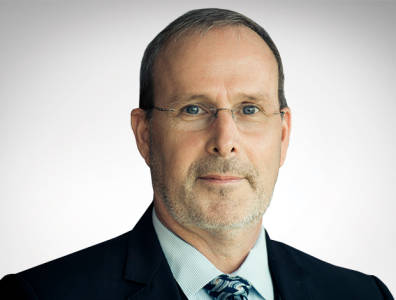
Angola’s high potential
May 16, 2018Marc Courtemanche, the country president of Equinor in Angola, talks to TOGY about curbing the decline of oil production in Angola, the legal framework surrounding the industry and the requirements for gas monetisation. Equinor is a partner in several Angolan blocks, producing around 180,000 bopd in the country. The company, previously called Statoil, changed its name in May 2018 to better position itself as a broad energy company.
• On opportunities: “We believe that the country has quite significant, yet-to-find and undeveloped resources in the Congo Basin. The recent review of the fiscal and regulatory framework for the industry is making some of those volumes potentially economically viable.”
• On exploration: “Even in a mature area and previously explored areas, there are still possibilities to find valuable volumes. New technologies as well as new processing of seismic data can always uncover new opportunities.”
• On natural gas: “Gas is a complex business. Finding ways to monetise the product is vital. This starts with having the necessary regulations to make it feasible to explore for gas as well as good prospects when it comes to monetisation, either through facilities in the country or in the international market.”
Most TOGY interviews are published exclusively on our business intelligence platform TOGYiN, but you can find an abridged version of our interview with Marc Courtemanche below.
Click here to read more
Carlos Saturnino has indicated that Equinor is interested in blocks 5, 46 and 47 in the near future: What comments can you make in this regard?
We believe that the country has quite significant, yet-to-find and undeveloped resources in the Congo Basin. The recent review of the fiscal and regulatory framework for the industry is making some of those volumes potentially economically viable. For Equinor as a company with a long-term commitment to Angola, it is a normal process to reassess our understanding of opportunities.
How can the decline of oil production in Angola be managed to ensure that the slope is as gentle as possible?
We have experience working in maturing regions such as in both the Norwegian and UK continental shelves.
In the beginning of October 2017, we made an announcement about the discovery in the UK continental shelf of a maximum of 125 million barrels, showing that even in a mature area and previously explored areas, there are still possibilities to find valuable volumes. New technologies as well as new processing of seismic data can always uncover new opportunities.
The situation in Angola is quite particular: While there are numerous significant existing discoveries in the Congo Basin, the recent review of the fiscal and regulatory framework for the industry is making some of those volumes economically viable, possibly further unlocking the potential of the Angolan oil industry.
What was the oil companies’ message to Angola’s new president that led the state to review some existing oil and gas regulations?
Engaging with the government is a key priority for the oil and gas industry as we need to align goals and objectives. When discussing with President Lourenço, we have illustrated some of the challenges that Angola is facing because of the maturity of the basins, but we have also shown that there are still good opportunities to mitigate the production decline. The O&G companies described the maturity level of the Congo Basin, its consequences and the expected decline of production, since Kaombo in Block 32 is the last project to have been sanctioned to date. By highlighting the challenges faced by the industry in Angola and having an open and close dialogue with the Angolan state, we hope to collaborate and further develop the industry in the country.
Oil companies will have rights to exploit gas in the near future. In your view, is that attractive for Equinor and what would be the requirements to build processing facilities, pipelines and transportation?
Gas is a complex business. Finding ways to monetise the product is vital. This starts with having the necessary regulations to make it feasible to explore for gas as well as good prospects when it comes to monetisation, either through facilities in the country or in the international market. Gas requires specific and longer terms compared to oil PSCs, which average around 25 years. Getting the full value out of gas requires 30-40 years.
Angola has proved resources when it comes to gas, and we are investigating ways to be able to monetise these resources. To find a solution we are pooling resources and competence from across the company, from countries such as Tanzania, where we are in close collaboration with the Tanzanian government to find best ways to monetise gas production. The new terms will create some enthusiasm, and primarily we will support our operators with our expertise to further enhance the potential of our portfolio.
Is your exploration team interested in looking into the Namibe Basin?
That is a frontier area. I can say we are looking at both mature basins and frontier basins in Angola. We would be keen to revisit the Congo Basin. If the terms for mature fields are put in place and if the right incentives are implemented for greenfield – but also brownfield – exploration, we would be prepared to go into exploration.
For more information on the Angolan market, see our business intelligence platform,TOGYiN.
TOGYiN features profiles on companies and institutions active in Angola’s oil and gas industry, and provides access to all our coverage and content, including our interviews with key players and industry leaders.
TOGY’s teams enjoy unparalleled boardroom access in 35 markets worldwide. TOGYiN members benefit from full access to that network, where they can directly connect with thousands of their peers.
Business intelligence and networking for executives: TOGYiN
Read our latest insights on:
-

BNA’s economic expectations for Angola
INTERVIEW -

A new era for the Lobito terminal
INTERVIEW -



 Angola
Angola 













